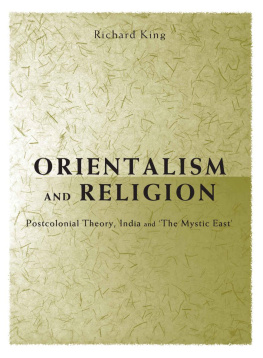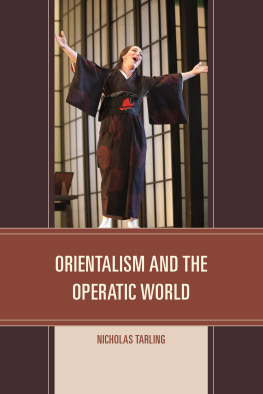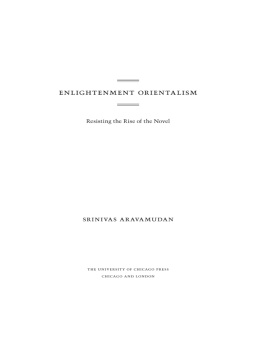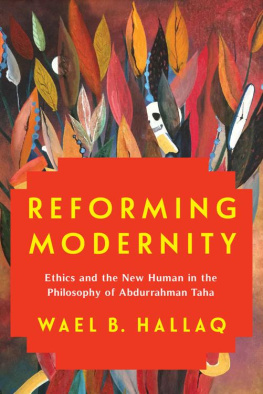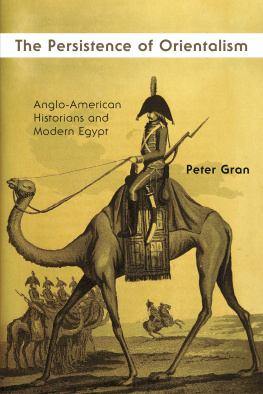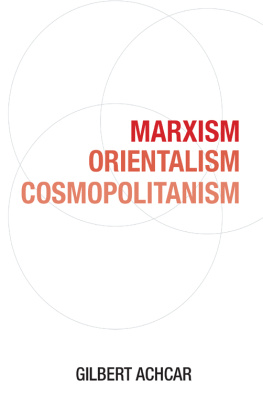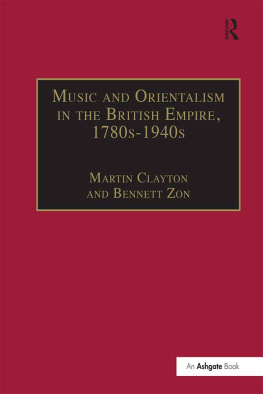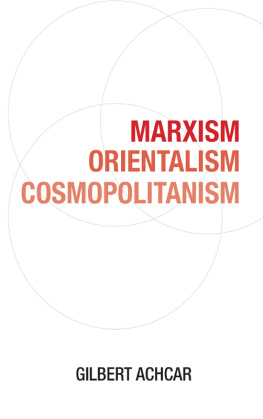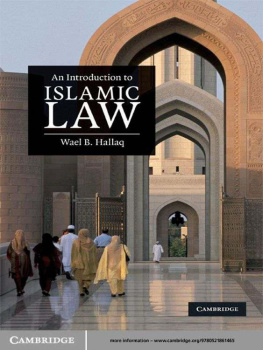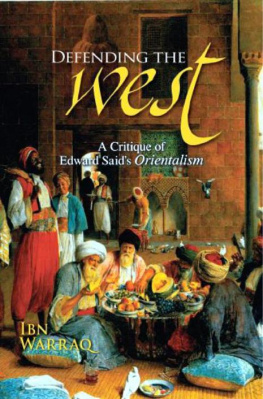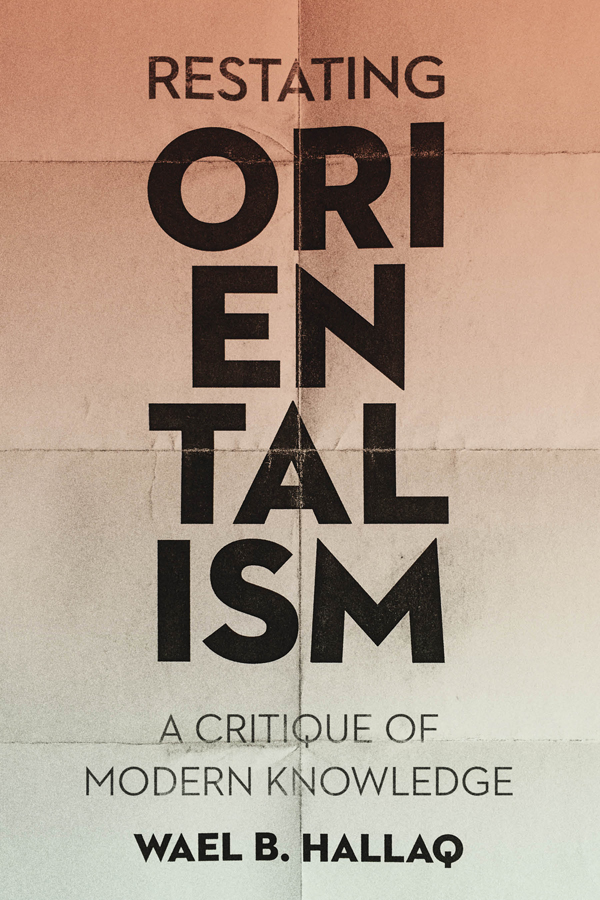Contents
Guide
Pagebreaks of the print version
RESTATING ORIENTALISM
Restating Orientalism
A CRITIQUE OF MODERN KNOWLEDGE
Wael B. Hallaq
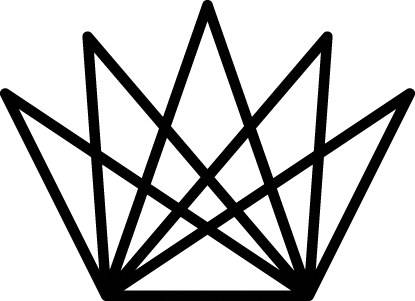
Columbia University Press
New York
Columbia University Press
Publishers Since 1893
New York Chichester, West Sussex
cup.columbia.edu
Copyright 2018 Columbia University Press
All rights reserved
E-ISBN 978-0-231-54738-3
Cataloging-in-Publication Data available from the Library of Congress
ISBN 978-0-231-18762-6 (cloth)
A Columbia University Press E-book.
CUP would be pleased to hear about your reading experience with this e-book at .
Cover design: Martin Hinze
Contents
T he arguments of this book have been in the making for more than a decade, particularly since 2009, when they became an almost permanent staple in my course offerings at Columbia University. Throughout these intellectual exercises, I have come to learn that there is no single important aspect of modernity that is not touched, to one degree or another, by the issues that the problem of Orientalism raises. This, then, is a book that is as much about modernity as it is about Orientalism, just as the concerns of my The Impossible State were as much about this condition as they were about the state. More importantly, and as this book intends to show, I have learned that Orientalism euphemizes a series of theoretical and substantive inquires that pertain to the constitution of the modern self as much as they are about a supposed Other, historical or otherwise. Although I am largely unconcerned with the modalities of Europes self-formation against an Orient, the constitution of the modern selfwhose sources certainly transcend the Orientremains for me a prime concern. In all the colonialisms and genocides that it contributed to, Orientalism emerges as a symptom, rather than the cause or chief culprit, of a psychoepistemic disorder plaguing modern forms of knowledge to the core. I have learned that in the very act of setting up this discipline as an analytical category, Orientalism itself undergoes considerable diminution and expansion, all at once.
The relative demotion of Orientalism complicates rather than simplifies our analytical task. Although this field of discourse is symptomatic of a pervasive psychoepistemic disorder, and as such could be treated like any other field of knowledge, it remains the most obvious corridor through which knowledge about the Other is transmitted. This crucial fact imposes on us a situation in which Orientalism must be recognized as both an accomplice to oppression and violence and, once liberated from its present condition, a necessary bridge to a different conception of the Other. The argument that those parts of academia that stand in the service of modern forms of capitalism, colonialism, and hegemonic power must eventually be made to vanish cannot, and must not, include Orientalism without qualification.
The tension between rejecting and retaining Orientalism requires a set of analytical procedures and resources that must reckon with certain givens. Essential to these givens is Edward Saids important work, most especially his remarkable Orientalism . Although my book is not, at the end of the day, about his work as a terminus ad quem , and despite the sustained and vigorousbut hopefully fair-mindedcritique I direct at it, I record my gratitude to him and to his staying memory, and do so with the full recognition of his influence on my early formation. Without his contributions, I very much doubt that this book would have been possible, just as much as his celebrated book has spun, and thus made possible, an entire field of discourse. On a psychological level, Said provided a model of nearly unmatched intellectual courage that has stayed with me since 1979, when I was first exposed to his work.
I have incurred a large debt to several people whose suggestions helped in sharpening the books arguments. Gil Anidjar and Sudipta Kaviraj, both of Columbia, read the book with great care and provided detailed critique. Their intellectual companionship has been enriching in more than one way, and beyond the bounds of the present project. Humeira Iqtidar, of Kings College, London, subjected the book to a thoroughly constructive critique, from which I derived great benefit. No less generous with his attention to an earlier draft was Omar Farahat, of McGill Universitys Law School. His warnings, among other things, as to how some of the books arguments might be misconstrued were invaluable, and will, I hope, minimize the sort of misconceived reactions that befell The Impossible State . Dariouche Kechavarzi-Tehrani, one of Columbias most brilliant students, read two successive drafts of the manuscript, each time providing various insights and extensively engaging me over cognate questions that have arisen in Latin American postcolonial literature. Abed Awad read the manuscript from a jurists perspective and offered a number of valuable comments. His generous help and support over the years have been inestimable. During the year or two preceding the writing of this book, I benefited from discussions with Sohaib Khan, who was an exemplary and challenging interlocutor. Finally, parts of the last chapter were presented as a lecture at Yale Law School in November 2015. Gerhard Bwering, Owen Fiss, Frank Griffel, Paul Kahn, Anthony Kronman, and Daniel Markovits engaged me in intense, fruitful discussions during the lecture and afterward. To all colleagues named, to Robert Demke for his competent editing, as well as to the anonymous but perspicacious readers of the press, I record my sincere gratitude. Needless to say, any error or weakness that this book may continue to harbor remains mine alone.
A word about the intellectual genealogy of this book. Unlike most commentators addressing the problem of Orientalism and other forms of knowledge, I come to the present project from within the field of Orientalism, having written in it and about it for nearly four decades. In some strong sense, it seems to me that most issues I have written about throughout this period, whether in the legal, historical, or philosophical fields, have been a series of engagements that are woven together around a single thread, despite the sometimes rather dissimilar materials and varied scholarly problems I have studied. While this book is far from being the culmination of my work, it is nonetheless the latest installment in this project, which is to say that it continues much of the work I have produced over the last two decades. What I say here therefore issues from, and often presupposes, earlier deliberations, and by necessity I could only invoke these deliberations with extreme brevity, if not merely gesture to them with citations. Of particular relevance are two books that lay the grounds for the present work, and the reader whose purpose is to genuinely engage the present book is strongly advised to read these works before poring over this one. The first of these, offering a fairly comprehensive background, is Shari a: Theory, Practice, Transformations (Cambridge: Cambridge University Press, 2009), while the second is The Impossible State (New York: Columbia University Press, 2013). Indeed, I regard the present book as a sequel to the latter, both together making a particular segment of my larger project more, though by no means entirely, complete. While The Impossible State was intended to interrogate the Muslim self and its place in, and exit from, modernity, the present project is about the place of the Western self in the modern project, as well as about possible exits from this condition. Yet, to confuse the two Selves, to argue that one entirely depends on the other, will amount, by the logic of this book, to denying the particularity and uniqueness, and thus autonomy, of cultures. I shall insist that while the colonized Other and its historical legacies and traditions provide a rich heuristic repertoire for ethicizing the colonizers self (partly the concern of The Impossible State ), the ultimate challenge facing Western modernity must be met from within the Western self, whose first act of self-liberation resides in the shedding of sovereignty over all that exists. The two books therefore complement each other and stand within a mutually enhancing dialectic.


